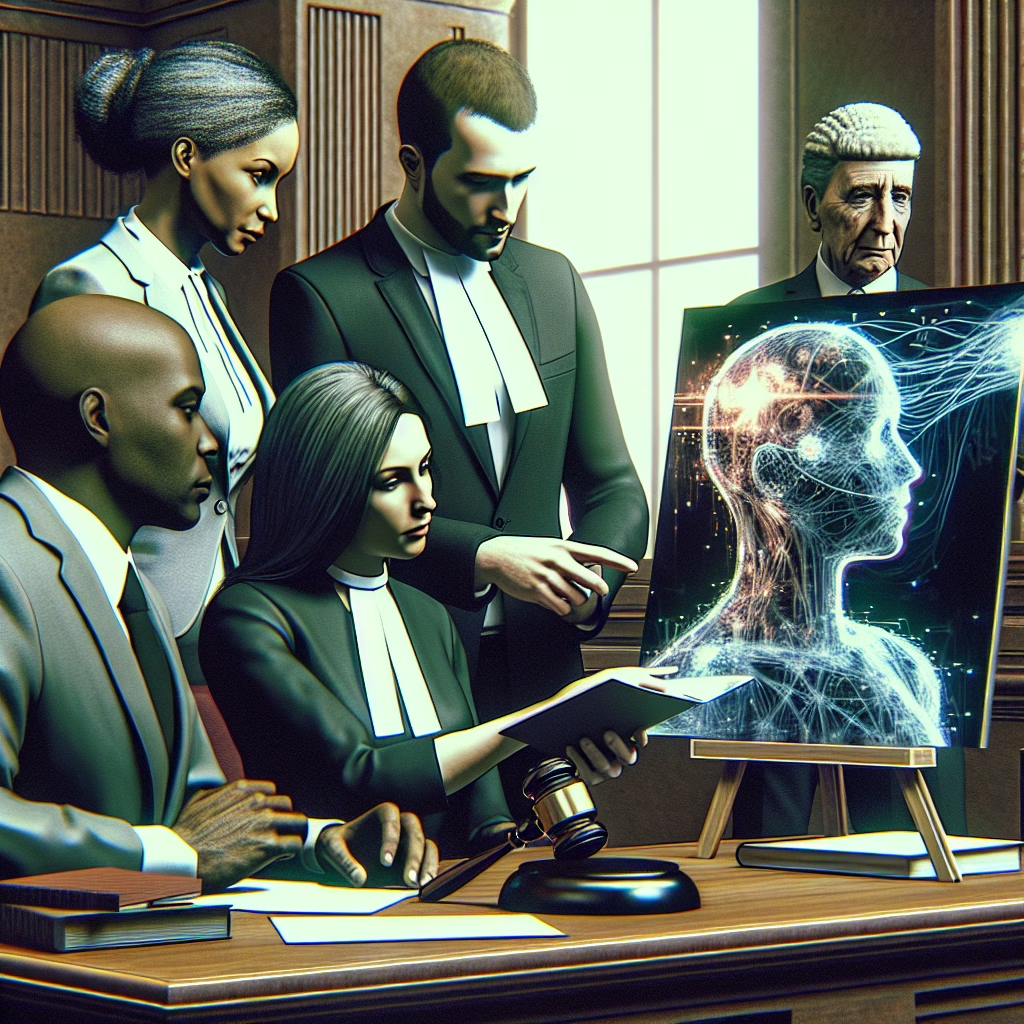Welcome to the wild world of artificial intelligence (AI) where creativity meets legal drama! In 2025, Meta found itself embroiled in a copyright lawsuit that has left many wondering: can AI truly be an artist, or is it just a really good copycat? With all the excitement surrounding AI-generated content, this case is set to redefine the relationship between technology and creativity, much like the evolution of digital art. Understanding the implications of this legal battle is essential as we move further into an AI-driven future.
The Saga Begins: Copyright Meets AI
Picture this: a courtroom filled with tech moguls, lawyers, and a judge who probably wishes they’d taken a nap instead of presiding over such a futuristic case. At the heart of this legal showdown lies the question of whether AI can own the copyrights to the art it generates. It’s like asking if your toaster deserves a royalty for making your breakfast toast!
Meta’s algorithms have been churning out images and music that rival human creations. But when those creations started showing up in various artistic spaces, some traditional artists felt like they were competing against an uninvited guest at their own exhibition. This lawsuit could shape how we view copyright law in the age of machines that can paint, compose, and even write poetry better than your high school English teacher. It challenges us to rethink what it means to be a creator in this era.
Understanding Copyright in the Age of AI
Copyright law has always been about protecting the rights of creators. However, how do you protect a creation that wasn’t made by a human? If an AI generates a piece of artwork, who gets to say, “That’s mine!”? It’s a bit like trying to claim ownership of a cloud – elusive and constantly changing. The copyright implications can be complex, merging ethics, legality, and artistic expression.
As we dive into this digital quagmire, let’s not forget that copyright is meant to encourage creativity. If artists feel threatened by AI-generated works, will they stop creating altogether? Or will we see a new wave of collaboration between humans and machines? The possibilities are as vast as a toddler’s imagination! Encouraging dialogue on the future of copyright within the AI context is essential.
The Implications for Artists and Technology
This case could set an important precedent for artists everywhere. If Meta loses, we might see a boom in AI-generated content as creators rush to embrace their robotic counterparts. Imagine an art gallery where every piece is labeled with “Created by AI” next to “Inspired by Picasso.” On the other hand, if Meta wins, traditional artists may breathe a sigh of relief as their copyright rights remain secure. What this means for the future of artistic integrity is profound.
Moreover, the outcome could impact how tech companies develop future AI tools. Will they be more cautious about how their algorithms learn from existing works? Or will they continue to train their AIs on everything available online without any regard for artistic integrity? Grab your popcorn; this legal drama is just getting started! Legal experts predict that this case could set standards that ripple through industries far beyond just the art world.
The Future of Creative Collaboration
While we wait for the verdict, let’s ponder an exciting thought: what if humans and AI teamed up instead of battling it out in court? Imagine artists using AI as a brainstorming partner – generating ideas faster than you can say “copyright infringement.” This could lead to innovative forms of expression that blend human emotion with machine precision. Such partnerships could evolve the definition of artistry itself.
As we look ahead to 2025 and beyond, embracing collaboration rather than competition may be key to unlocking new creative potentials. After all, wouldn’t it be wonderful if we could all get along? Think of the amazing art installations that could come from such partnerships! It’s not just about art; it’s about how we engage with technology in a way that enhances the creative process.
Wrapping Up: A Call for Dialogue
So what do you think about this ongoing saga between Meta and copyright law? Is it time to embrace our AI companions in the creative process, or should we put our foot down and protect human artistry? Share your thoughts below! Encouraging an open conversation will be crucial for the progression of both art and technology.
In conclusion, as we navigate through these murky waters of technology and creativity, let’s remember that art is meant to inspire debate and dialogue. And who knows? The next great artist might just be an algorithm with a flair for drama. What remains most important is that we establish frameworks that support all creators, human and AI alike.
Thanks to Wired for providing insight into this fascinating case! As we explore the future, let’s keep an eye on how such legal battles will shape our understanding of creativity and copyright in the digital age.

